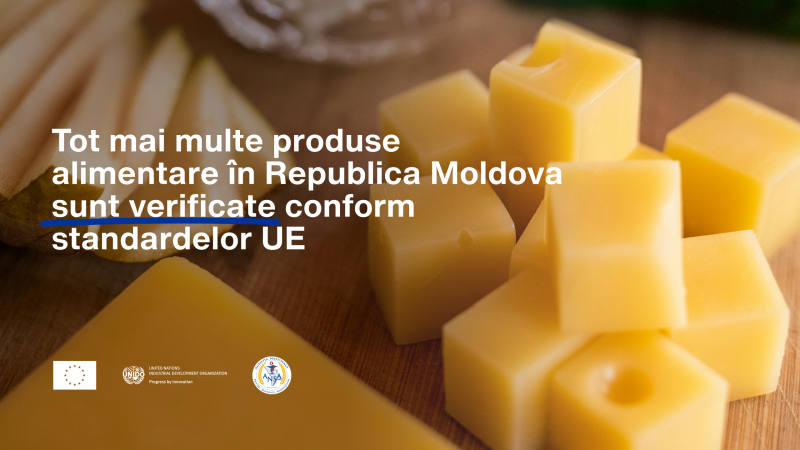
Depozitarea temporară a mărfurilor, mai simplă și mai avantajoasă grație noului Cod Vamal
Odată ce mărfurile unui agent economic ajung pe teritoriul Republicii Moldova, acestea sunt depozitate temporar până a fi plasate sub regim vamal. Astăzi, cu adoptarea noului Cod Vamal, depozitarea e mai simplă și îți oferă o serie de beneficii economice.
Ce este „depozitarea temporară”?
Depozitarea temporară îți permite să păstrezi mărfurile sub supravegherea vamală pentru o perioadă de până la 90 de zile. Acest lucru îți oferă flexibilitate maximă în gestionarea mărfurilor introduse pe teritoriu național și timp suficient pentru a alege cel mai avantajos regim vamal. În cadrul depozitării temporare se asigură supravegherea vamală a mărfurilor, acestea fiind depozitate în spații autorizate sau desemnate de Serviciul Vamal, unde sunt prezentate mărfurile. Cererea pentru aprobarea acestor spații se depune în formă liberă pe numele șefului biroului vamal responsabil de zona unde își desfășoară activitatea solicitantul.
Cum funcționează?
Mărfurile, de regulă, sunt plasate într-un spațiu de depozitare temporară autorizat (articolul 151) exploatat fie de importator, fie de un depozitar care este obligat să furnizeze o garanție, pentru a acoperi orice datorie vamală care ar putea apărea (articolul 151 alineatul (3, c) coroborat cu articolul 98 CV). În cazuri specifice (pentru o perioadă limitată).
Mărfurile care se regăsesc în depozitare temporară pot fi mutate într-un alt loc desemnat sau aprobat de Serviciul Vamal (punctul 252 din HG 92/2023). Cu un simplu aviz din partea Serviciului Vamal, poți muta mărfurile între diferite spații de depozitare autorizate, mai eficient și la un cost mai mic. Cu toate acestea, în lipsa acestei autorizații, regimul de tranzit poate fi utilizat pentru astfel de mutări. Când procedura de tranzit s-a încheiat, mărfurile vor fi din nou în depozit temporar și începe o nouă perioadă de 90 de zile.
În timpul depozitării temporare, mărfurile nu fac obiectul altor manipulări decât al celor destinate să le asigure conservarea fără a modifica aspectul sau caracteristicile tehnice (articolul 151). Mai mult, ai posibilitatea de a verifica mărfurile și de a preleva probe, totul cu aprobarea Serviciului Vamal. Asta înseamnă mai puține griji și mai mult control asupra operațiunilor tale (articolul 142, alineatul 5).
Care este termenul depozitării temporare?
Mărfurile străine depozitate temporar sunt plasate sub un regim vamal sau sunt reexportate în termen de 90 de zile de la prezentarea lor în vama (articolul 153).
Ce se întâmplă în cazul în care este depășit termenul de depozitare?
În cazul în care mărfurile nu au fost plasate sub regim vamal sau reexportate în termenul de 90 de zile, Serviciul Vamal întreprinde toate măsurile necesare de dispunere de mărfuri, inclusiv confiscarea sau distrugerea, pe cheltuiala declarantului. În mod alternativ, mărfurile pot fi abandonate în favoarea statului de către deținătorul mărfurilor sau de către declarant, cu permisiunea prealabilă a Serviciului Vamal.
Conform Codului Vamal al Republicii Moldova nr.95/2021, mărfurile străine introduse pe teritoriul vamal al Republicii Moldova sunt depozitate temporar din momentul în care sosesc și sunt prezentate în vamă până când sunt plasate sub regim vamal sau reexportate. Codul Vamal stabilește principiile juridice, economice și organizatorice ale activității vamale, normele și procedurile generale aplicabile mărfurilor introduse pe sau scoase de pe teritoriul vamal și este orientat spre apărarea suveranității și securității economice a Republicii Moldova.
Noul Cod Vamal nu doar protejează interesele economice ale Republicii Moldova, dar și facilitează activitățile comerciale, creând un mediu propice pentru afaceri și contribuind la dezvoltarea economică sustenabilă. Pentru a profita de aceste beneficii, optează pentru depozitarea temporară conform noului Cod Vamal.








